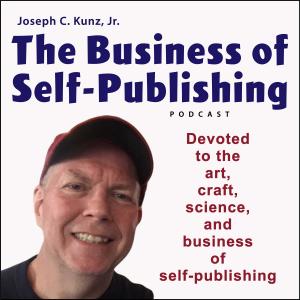The Business of Self-Publishing

Endorsement vs. Testimonial: A Guide for Self-Publishers
Updated January 18, 2023
Subtitle
Together they create the most powerful sales tool for authors
Synopsis
It is essential for a self-publisher to understand the differences between an endorsement and a testimonial – sometimes lumped together as “blurbs.” Each plays a vital role in the financial success of your book. Therefore, I have laid out some basic definitions to help give you a starting point before you begin writing and marketing your book.
What You Will Learn
1. You will learn the critical differences between an endorsement and a testimonial.
2. You will learn how to define an endorsement and a testimonial.
3. You will learn how and why using an assortment of endorsements and testimonials makes them a potent marketing tool when used together.
Introduction
It is essential for a self-publisher to understand the differences between an endorsement and a testimonial – sometimes lumped together as “blurbs.” Each plays a vital role in the financial success of your book. And they will both play an essential role in a book’s overall marketing plan.
Together, they give third-party validation to your book – the most powerful sales tool you can use. Without these, your book will struggle for sales. Therefore, I have laid out some basic definitions to help give you a starting point before you begin writing and marketing your book.
A. Endorsements
There is a fine distinction between endorsements and testimonials. For example, you might get a short endorsement from celebrities, industry insiders, industry gurus, and big-name authors. By endorsing your book, they tell the public they trust what you say.
They generally talk about the book alone and not necessarily about you, the author. They also do not usually discuss how your book helped them with problems or improved their lives.
Example: “Author Joe is the foremost authority on his topic.” Dr. Johnny Bigshot, Ph.D., Dean of the School of Business at Big Fancy University.
B. Testimonials
Testimonials, on the other hand, generally come from your readers, clients, and ordinary citizens. At first glance, these might seem less desirable than a celebrity endorsement. But thinking this way would be a mistake because they are still essential to your book’s overall marketing plan and success.
A great testimonial will give in-depth information about how your book dramatically helped the reader improve their life. The reader is “testifying” about how your book helped them solve their problem.
Example: “Author Joe’s book helped give my life a purposeful mission and helped me fix my business and make lots of money. His book gives detailed information that helped me discover and fix my faults over six months.” John Smith, a small-business owner.
C. The Powerful Impact of Teamwork
All book buyers like to see an endorsement from a big-name celebrity or industry guru. But consumers know that these “celebrities” have some personal interest in getting their name in print. Using them together is the most extraordinary power of using endorsements and testimonials.
Therefore, testimonials from regular people also carry weight with the book buyer. A testimonial from “real people” will appear less biased and more honest. Thus, book buyers are looking at both endorsements and testimonials to give them an overall view of your book before buying.
Conclusion
Do not underestimate the power of endorsements and testimonials to help get your book noticed, purchased, and read. Getting many powerful endorsements and testimonials from a great variety of people will almost guarantee that your book will get the attention it deserves.
Using these endorsements and testimonials in your book, on the book’s cover, website, blog, sell sheet, on Amazon, etc., will help keep your book selling for a long time. Always be looking to get more of both types – the more, the better.
Questions to Think About
1.






 Visit Podcast Website
Visit Podcast Website RSS Podcast Feed
RSS Podcast Feed Subscribe
Subscribe
 Add to MyCast
Add to MyCast